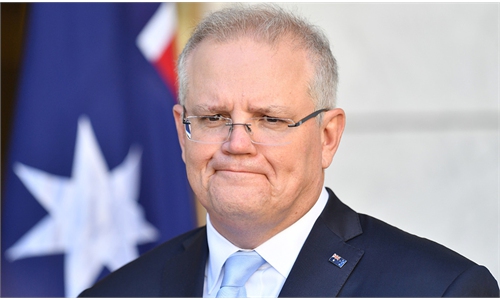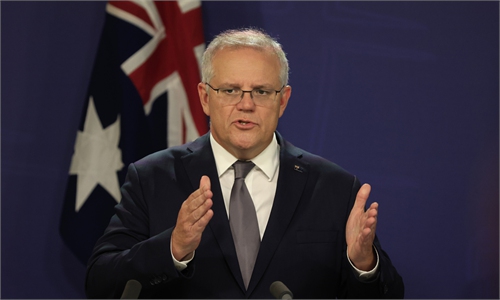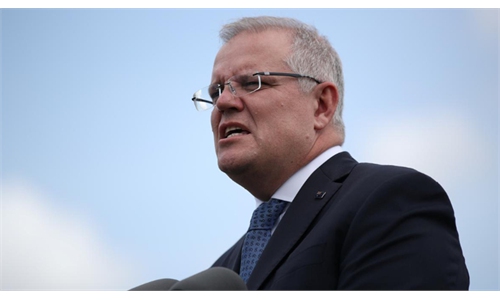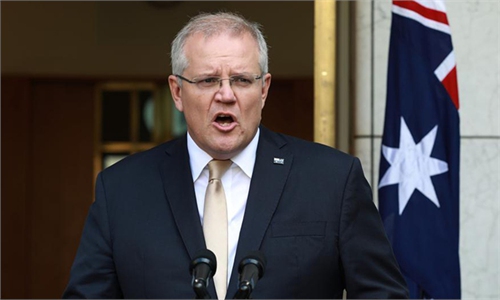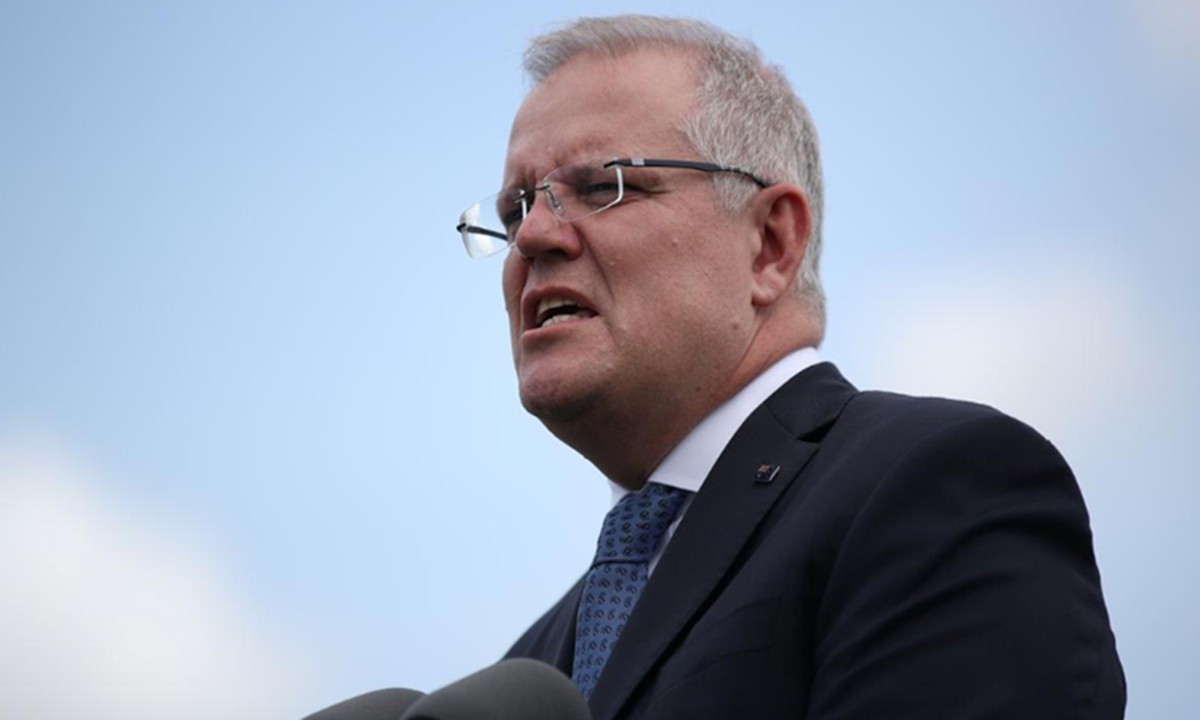
File picture of Australia PM Scott Morrison. /Xinhua
Australian Prime Minister Scott Morrison just drew a "red line" for China. Australian media widely reported on Sunday that Morrison claimed China building a military base on the Solomon Islands would be "red line" for both Australia and the US. "We won't be having Chinese military naval bases in our region on our doorstep," he was quoted as saying, adding "I share the same red line that the US has."Wait. Are Australia and the US, the countries which have been provoking other countries, setting the standard for a "red line?" Has NATO, which provoked Russia for decades through an eastward expansion respected Russia's red line? And has Australia, which kept sending lethal weapons to the war zone to support Ukraine, ever taken Russia's red line into account?
If the US and Australia are so eager to discuss a "red line," they should first review their own deeds. Over the years, Washington and Canberra have been constantly stirring up trouble in the Indo-Pacific region, especially in terms of the Taiwan question, South China Sea issue, and the disputes over the Diaoyu Islands.
US arms sales to Taiwan island have been going on for a long time, and quite recently, Washington not only sent a high-level delegation of politicians to the island, even House Speaker Nancy Pelosi - the third-ranking political figure in the US, behind the president and vice president - had reportedly planned to visit Taiwan island. Australian Defense Minister Peter Dutton, on the other side, has pledged allegiance to the US in so-called defending Taiwan.
Apart from that, the two have also attempted to draw Southeast Asian claimant countries to their side to contain China. US President Joe Biden once said Article 5 of the US-Japan Security Treaty will be applied to the defense of the Diaoyu Islands, and Australia has been pointing fingers at China's claim of the South China Sea.
Yet Taiwan island, South China Sea and the Diaoyu Islands concern China's territorial sovereignty. Is the Solomon Islands part of Australian or US soil? No. The Solomon Islands is a sovereign country. When China draws its red lines based on its own territory, sovereignty and core interests, Canberra and the US are doodling their red lines far away from their borders, turning a blind eye to others' sovereignty, Xu Shanpin, an adjunct research fellow at China University of Mining and Technology, told Global Times.
Morrison said he "won't be having Chinese military naval bases in our region on our doorstep," regardless of the fact that China has cleared multiple times that the agreement with the Solomon Islands is not about establishing a military base, but focuses on security cooperation, which is the normal exchange and cooperation between two sovereign and independent countries. His wordings also triggered a question: Why could the US have its military bases worldwide, at a number of other countries' doorsteps, and can carry out its freedom of navigation operations wherever it wants? What a tale of two rules-based orders.
The relevant standard of the US and Australia has been ironic: They can provoke, but whoever fights back would be called an "aggressor." They can condemn any country, yet whoever talks back will be labeled a "wolf worrier;" They can have all forms of military cooperation with others, but China's legitimate security collaboration with others is a "threat."
When Morrison made the "red line" rhetoric, he jeopardized the red line of the Solomon Islands, an independent country, by failing to respect the latter's diplomatic sovereignty. The Australian government is so used to making decisions on behalf of Pacific island countries, with the belief that those islands should naturally follow its "guidance." Such a mentality can be viewed as Australian neo-colonialism, Yang Honglian, senior researcher at the Liaocheng University, told the Global Times.
Yet, no country has the right to set security red lines beyond its borders, as doing so would severely deteriorate regional stability, and boost uncertainties among major power interactions, Xu said. Unfortunately, what the US and Australia have been saying and doing is turning the Pacific region into a battlefield of major countries.
Some observers also noticed an interesting part in Morrison's remarks. He wanted to be tough to China, but deliberately mentioned the US to support its stance, which mirrors how much nerve Australia actually has. Western countries like to say "speak from a position of strength." Without enough strength, a country is not qualified to draw red lines for others, Yu Lei, chief research fellow at the Research Center for Pacific Island Countries of Liaocheng University, told the Global Times.
